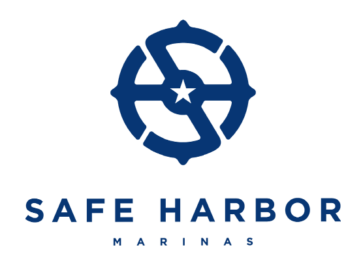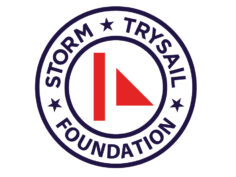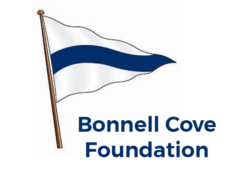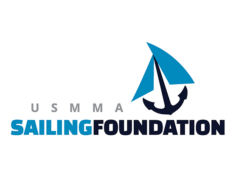This panel of five experienced offshore sailors discussed Leadership from a yachting perspective based on actual experience in positions of Leadership.
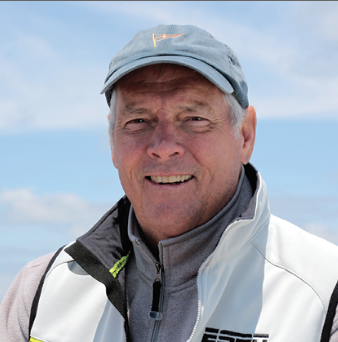
Gary Jobson – Moderator – STC member, experienced offshore sailor, winning America’s Cup tactician, winner of many offshore races including 1979 Fastnet Race, author of 21 books on sailing, commentator for nine America’s Cups and six Olympic Games, Graduate - State University of New York Maritime College.
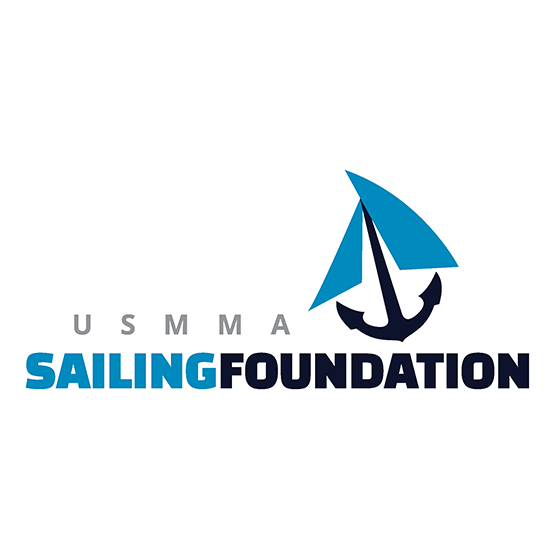
Gary opened the panel’s discussion with the following thoughts: “For many sailors, serving as a Leader is the essence of life. Taking command is a big task and sometimes it can be lonely being the person-in-charge. All Leaders understand that you can delegate authority but never responsibility. Setting clear goals and communicating the mission to the entire team is the first step. Use the lessons of the past as your guide. Unforeseen circumstances may dictate that a plan may change throughout the mission. In the end, everyone will learn from the experience and be better prepared for the next adventure.” Gary also shares his further thoughts on Leadership in Appendix 1.
On the panel with Gary were a quintet of offshore sailing legends.
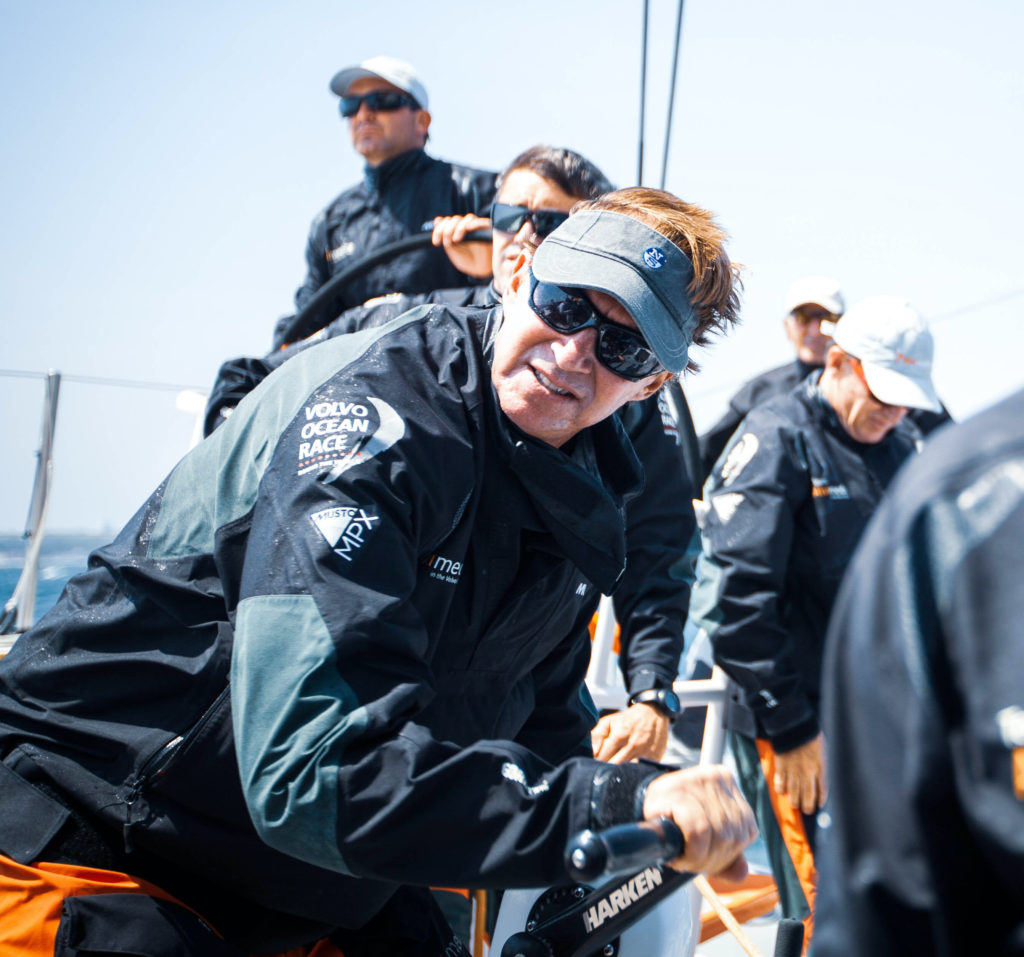
Ken Read – STC member, Collegiate Sailor of the Year, Rolex Yachtsman-of-the-Year, Skipper in two Volvo Ocean Races and two America’s Cup campaigns, World Champion - Etchells Class and J 24 Class, Skipper, Maxi-yachts Comanche and Rambler, President of North Sails, Tactician Challenge, Twelve Meter World Champion. Graduate - Boston University.
Ken Read’s key recommendation was to surround yourself with people better than you, not necessarily better sailors, but better teammates. His philosophy rang true when he spoke about composing a crew of first-class sailors, but they struggled with teamwork. “It’s not about competence, rather it’s more about character. You can learn sailing/seamanship skills, it’s harder to learn teamwork and mutual care. I have used this practice my whole life - surrounding myself with successful people - in many area: spiritually, financially, physically, and intellectually - and I have grown tremendously.”
Read went on to make the following comments:
- “Leaders always try to become better Leaders.”
- “Talent without working as a team cannot succeed.”
- “A Leader should be able to put up his/her hand and say, ‘It’s my fault.’”
- “Don’t fear change. Try something new.”

Dawn Riley – STC member, Skipper of Heineken and crew on Maiden in Whitbread Round the World Races, Rolex Yachtswoman-of-the-Year, crew, captain and CEO of America’s Cup campaigns, Author: Taking the Helm, Executive Director of Oakcliff Sailing. Graduate - Michigan State University.
Dawn’s emphasis was on readiness. “Seventy-five percent of the race is won before it begins. Preparation, planning, and anticipation cannot be emphasized enough. This is paramount. Just ask Navy SEALs or NASA Astronauts and they will tell you about the importance of training, drills, and planning. They train years for a mission, testing responses to all possible situations that may occur. As smart as they are, they know – if there is a mistake it could be them next. They understand human failure.” She concluded her presentation saying:
- “If there’s time, try to engage the team in decision making.”
- “A Leader has to be the ‘Chief Worrier,’ always thinking ahead.”
- “A Leader needs to balance toughness and empathy.”
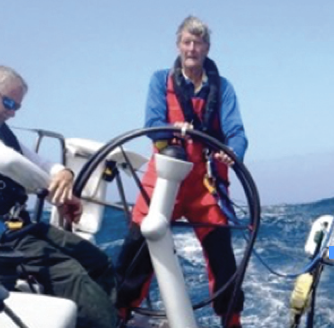
Larry Huntington – STC member, Past Commodore of New York Yacht Club, sailed in eight Transatlantic Races, campaigned his yacht Snow Lion in many offshore races, retired CEO of Fiduciary Trust, Mountaineer (two assaults on Mount Everest) Graduate - Harvard University.
Larry emphasized that the ideal captain should ‘work himself (herself) out of a job, hiring people who are more experienced, smarter, and more talented than he is. Larry doesn’t hold back when training them. “I want them to be as good as me at the various tasks at work. Then I focus on supporting them and keeping them as happy and fulfilled as possible. I want a crew composed of as many Leaders as possible.” (Similar to David Marquet’s philosophy expressed in Turn the Ship Around).
Larry also described his experience attempting to scale Mt. Everest twice with Eric Simonson as team Leader. Larry was aware of the personal traits, especially willingness to take risks, of the other climbers. For the final assault, Larry made sure that he was teamed with like-minded climbers.
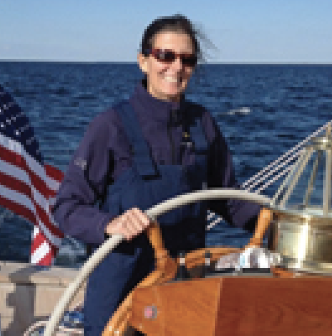
Renee Mehl – STC member, Director of Offshore Sail Training at United States Naval Academy, crew on Heineken in Whitbread Round the World Race, past committee member World Sailing - Special Regulations, frequent speaker on Safety-at-Sea, Graduate - Michigan State University.
Renee shared her thinking on the repeating loop of learning Leadership. It starts with some form of training. It could be a formal safety-at-sea seminar, or more informal on-the-job training with more experienced mentors. Training must be reinforced by practice to gain proficiency in newly learned skills. Continued practice helps Leaders gain experience in different situations and the muscle memory to know how to react in emergencies in all conditions. Mistakes are usually made while gaining experience. Reflection on mistakes helps us learn what not to do or what to do better the next time. Reflection can also help us recognize actions and behaviors that led to a positive outcome.
Pre-briefs and debriefs are a critical part of sharing knowledge of mistakes and the lessons learned from them with the rest of the crew. It often helps if the Leader critiques his or her own role first. Clear communications are one of the more important behaviors of a good Leader.
“Leadership improvement is a four-step loop: Training, Practice, Mistakes, Reflection,” she says, “Train the way you fight. Fight the way you train.”

Stan Honey – STC Member, Rolex Yachtsman-of-the-Year, Winning Navigator in Volvo Ocean Race and multiple Transpac Races, Navigator on recording-setting circumnavigation, created innovative on-screen graphics for America’s Cup and many other sports including football. Graduate – Yale University and Stanford University.
Stan Honey addressed Leadership from three perspectives: Skipper, navigator, and crew. When preparing to present strategic decisions to the Skipper, as navigator Stan asks himself: “What mood is the Skipper in? Is this a curious Skipper who asks lots of questions, or a hurried Skipper who just wants to make a quick decision? Or is the Skipper the argumentative type? If the last case, I don’t give an opinion, I just present the facts, and usually the Skipper will come around.”
Stan recommends: “Play the long game, not the short game.” This reminded some of Jocko Willink, a retired U.S. Navy Seal, who talks about the difference between the short game and the long game. “People concerned about the short game may win the battle but not the war,” noted Wilink. “They are micro-focused on being fastest, first, best, biggest, whatever – BUT people who win the long game understand that they will have bad days, and there will be challenges.” Simon Sineck refers to the “Finite vs. infinite game.” Leaders focused on the long game/infinite game mindset will persevere in spite of difficulties. As Stan Honey says, “Sometimes you may need to go 100 miles off course after reading the weather fax, but by doing so you have more favorable weather later on.”
Honey also focused on being a communicative Leader. As a world-class offshore navigator, he would regularly brief the on-watch members as well as the on-coming watch and watch captains. By keeping everyone up-to-date on what to expect in the next few hours, situational awareness was enhanced, and overall performance and tactical maneuvers could be better anticipated.
Stan’s principal points included:
- “The Navigator acts in a supporting role to the Leadership to help them do well.”
- “Briefing the crew in advance gets their heads into the game. Briefing each on watch increases their situational awareness and helps them prepare.”
- “Keeping the crew informed prepares them for tough tactical decisions that may need to be made. They have to see it coming.”
- “If the Skipper is argumentative, better for the navigator to present the facts rather than a recommendation, enabling the Skipper to arrive at the correct conclusion.”
- “Accident reports must be available to the public so lessons can be learned.”
- “A Leader’s absolute faith in his well-trained crew became apparent during a round-the-world race. “The fires had been extinguished, but the electric system had melted down, the leeward steering wheel was ripped out, and water was flooding the cabin. The Skipper, Mike Sanderson, said: ‘I’ll drive. The rest of you get on with it.’ The problems were resolved, and the boat won that leg of the Volvo Race.”

